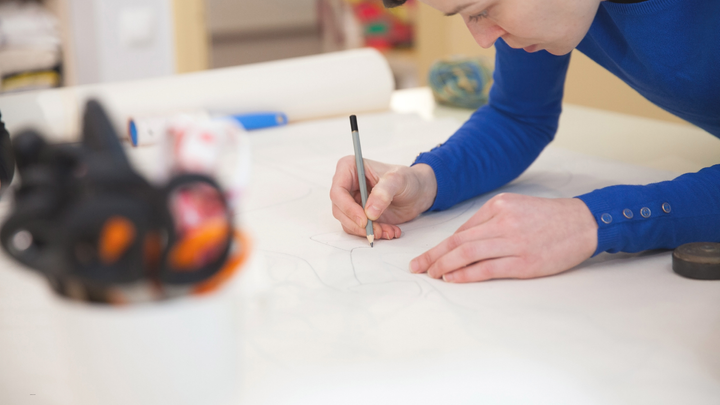5 Lessons Learned From Doing PhD

Originally published here
I am so grateful
Maybe I was crazy. I thought doing PhD was sexy in a weird way. My parents, friends, and family supported me above and beyond what I was hoping for. The idea of being an expert in an area, and have the ability to teach or disseminate well-understood knowledge to large audiences was attractive to me. So I plunged in and did it. It was one of the hardest things that I have done…. by far. These are the lessons that I learned.
1. I learned that PhD is not just about research, it’s also about teaching
In theory, your PhD thesis should be about uncovering new scientific knowledge. In fact, PhD stands for “Doctor of Philosophy”. Creating new knowledge is the main goal. Although often your idea might not be completely original, often we strive to create incremental progress in our knowledge area.
In practice, however, you will find out pretty fast that there are a lot of other things to do besides reading academic articles on your research topic. You have to learn, for example, how to run a research project. This will include many steps such as setting up an experiment, qualitative and quantitative data analysis, and writing and publishing research papers. You also realize pretty quickly that you need to network with other researchers/professors around the world to be part of a research group, which I can tell you that it’s really difficult to do.
I learned that PhD is not just about research, it’s also about teaching. This is what I mean. It’s not that hard to read some textbooks and lecture first-year students or even PhD students. But what I learned was that teaching is really about explaining your knowledge and ideas to other people. This means that you need to be able to explain what you know, how you came up with this idea (i.e., the “story”), and why it’s important for everyone else in order to benefit from the research. From my experience, you can’t do that well if your knowledge is shallow. It was a big awakening moment when I went to a seminar run by one of the very top organizational psychology professors. He was able to explain his research and his new findings very simply. The entire room full of people understood exactly what he was talking about. I was in awe of how easily he explained this very complex psychological concept.
2. I learned to value the importance of my work and how it can be applied in real life
I remember submitting my assignments to my professor during my undergraduate days. Once submitted, I didn’t care. All I cared about was what grade I got on the paper. The feedback I received didn’t matter. It was over.
As I moved up the corporate ladder, I learned my work product represented my work, my commitment, and my reputation. This was especially true as I was doing my PhD. Every presentation I gave and every paper that I submitted to a journal had my name on it. It was my work product. My research output was my currency. The only thing that mattered.
I learned how to care about my work. I started thinking about the impact of my work (with my name on it) can have on others. It was hard to think about this when I was just staring at my computer screen trying to write one more paragraph. But seeing that my published paper was getting cited by other papers, made me realized that my research was making an impact. It’s important.
3. I got more confident and less anxious while talking in front of a large audience
Fear of public speaking is real… don’t you agree? But I had to learn how to do PhD presentations in front of a large audience and known experts in my area. This experience helped me become more confident while talking in front of an audience because I was forced to present even when it is not my best performance and content/idea was not fully developed. Even though this happened several times, each time I regrouped and presented again.
I also got anxious less because I saw it as an opportunity to learn more and improve my PhD presentations skills instead of a fear of failure or embarrassment. I quickly realized that it was my attitude and my confidence in my delivery that mattered the most. Of course, it also has to do with the amount of preparation that I put in. Like I said above, it was my work and it represented who I was.
However, you need to have some degree of comfort with public speaking if you want your PhD presentation proposal accepted by the committee members or want to lecture in front of 200 undergraduate students who are constantly judging you.
In short, do not be afraid and make sure that you are humble so that your audience will join you, instead of becoming your obstacle. And keep doing it.
4. You need some luck too…. like being matched with a superstar academic supervisor
I thank my lucky stars when it comes to the academic supervisor. I had the most amazing PhD supervisor who was willing to support me through my PhD journey. She was not only a fantastic academic professor but also an excellent mentor, instructor, and guide for me. I am very fortunate that she understood when to push me and when to pull me. She was always there to support me in any way to get me closer to finishing. It was what any PhD candidate could ever ask for. Because of that, it was my mission to not disappoint her. Unfortunately, I witnessed many of the other PhD students not having the kind of relationship that I had with their supervisors. Their research progress slowed and their mental health was affected. Some of them questioned whether it was a mistake to commit to their PhD program at all.
I guess it’s a lot like any other occupation. Your work and job satisfaction can be heavily influenced by your manager. Like the saying… you leave your manager not your organization.
5. A PhD doesn’t guarantee you a job but it will definitely provide you with skills for your future career
OK. I learned this lesson after leaving my academic career.
After completing my PhD, I had two post-doctoral research fellow roles. The work for the two positions was very interesting and I worked under top of the very top academics in the world. I developed my data analytics stills further and established myself as an expert in building statistical models. However, I couldn’t see a viable opportunity in my area to continue as an academic. I decided to do a career change and got a job at a state government.
From the government job, I quickly learned how easily I was able to apply the skills that I developed during PhD. I was surprised by how transferable my skills sets were. Ability to formulate and articulate problem statements; designing a proper project plan when the data-driven research component was included; like I pointed out above, the ability to deliver a presentation confidently in front of a large group of people.
These are the valuable lessons that I learned from completing my PhD program. Although the original plan of maintaining a research career is not likely and it’s just the beginning of my government career, I feel confident that I am well equipped to deliver value to those who I care about.
I hope this was helpful especially if you want to apply to a PhD program. Please feel free to leave me a comment if you have any questions.



Comments ()